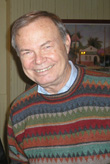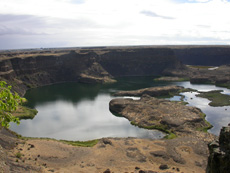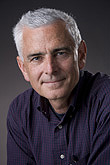|
Wednesday, Aug. 27
3:30 p.m.
DIRECTOR'S COFFEE BREAK - 2nd Flr X-Over
THERE WILL BE NO FERMILAB COLLOQUIUM THIS WEEK
Thursday, Aug. 28
THERE WILL BE NO PHYSICS AND DETECTOR SEMINAR THIS WEEK
2:30 p.m.
Theoretical Physics Seminar - Curia II
Speaker: J. Shu, University of Chicago
Title: Topological Interactions at the LHC and a Generalized Landau-Yang Theorem
3:30 p.m.
DIRECTOR'S COFFEE BREAK - 2nd Flr X-Over
THERE WILL BE NO ACCELERATOR PHYSICS AND TECHNOLOGY SEMINAR TODAY
Click here for NALCAL,
a weekly calendar with links to additional information. |
|
Wednesday, Aug. 27
- Smart cuisine: shrimp gumbo
- Pizza burger
- *Smart cuisine: garlic herbs sole
- Smart cuisine: Mongolian beef
- California club
- Assorted slice pizza
- Chicken Cajun pasta
*Carb Restricted Alternative
Wilson Hall Cafe Menu |
|
Wednesday, Aug. 27
Lunch
- Salad nicoise with fresh grilled tuna
- Lemon cake with blueberry coulis
Thursday, Aug. 28
Dinner
- Closed
Chez Leon Menu
Call x4598 to make your reservation.
|
|
|
DOE's P.K. Williams retires
 |
| P.K. Williams |
P.K. Williams views himself as a small cog in the high-energy physics research machine, but to hundreds of universities and researchers throughout the country he is a key component.
Philip K. Williams, who prefers to be called by his first and middle initials, has spent more than 20 years allocating funding in support of the high-energy physics research of universities nationwide. He is especially proud of the DOE contribution to the LHC.
Williams, a program manager within the Department of Energy's Office of High Energy Physics, will retire today after nearly 30 years.
DOE's Kathy Turner, who worked for Williams for eight years, called him a great colleague and friend.
"I really think that no one can fill his shoes. He's run the University Research Program for so long and with such care," Turner said. "He knows the details in terms of people and funding at each university and has always kept on top of what was going on in the field. I don't know that we'll ever find anyone like that again."
Williams, who has a Ph.D. in theoretical physics, began working with DOE as a temporary employee in 1979. He took charge of the University Research Program in 1987 and ran it until DOE's reorganization earlier this year. He reviewed university grants, visited the institutions to learn more about their research and allocated the funds to each institution.
"He cares deeply about the field of high-energy physics and making the University Research Program strong," Turner said. "At every university I go to, I hear how much they're going to miss him and how strong and stable the program's support has become over the years. P.K. put his whole heart into the details of this program."
Although Williams looks forward to traveling, golfing and enjoying other hobbies during his retirement, he will miss the HEP community.
"Working with the physicists in HEP has been a really rewarding experience," Williams said. "The quest that they are on is second to none."
-- Rhianna Wisniewski
|
Megafloods lecture Sept. 12

CD's John Urish took this photo of Dry Falls, Washington. The area was swept by cataclysmic floods, also called megafloods, at the end of the last Ice Age.
Could a flood change our planet's climate? Megafloods, a lecture by University of Arizona Professor Dr. Victor R. Baker on Friday, Sept. 12, will address questions such as this and discuss the historic impact floods have had on landscape and climate. Megafloods, the largest known freshwater floods, have flows comparable in scale to ocean currents and are capable of inducing global climate change. These floods occurred at the end of the last Ice Age.
Baker, a regent's professor of hydrology and water resources at the University of Arizona, has researched these floods across the globe and throughout the solar system. Baker's research projects include paleoflood hydrologic studies in Texas, Utah, Arizona, northern Australia, Israel, Jordan, and India; the study of channels, valleys, and geomorphic features on Mars; the geomorphology of Venus; river morphology in South America; and catastrophic Pleistocene floods in the northwestern U.S. and central Asia.
Baker also conducts research on the history and philosophy of Earth and planetary sciences and on the interface of environmental science with public policy. He holds professorships in geosciences, planetary sciences and at the Department of Planetary Sciences Lunar and Planetary Laboratory.
Megafloods, a Fermilab Lecture Series event, will take place at 8 p.m. on Friday, Sept. 12, in Ramsey Auditorium. Tickets are $5. For further information or telephone reservations, call (630) 840-ARTS weekdays between 9 a.m. and 4 p.m. Phone reservations are held for five working days. Visit the Lecture Series Web site for more information.
-- Rhianna Wisniewski
|
|
|
Batavia: the Cosmic Frontier
Craig Hogan, who became the head of the Fermilab Center for Particle Astrophysics on July 1, wrote this week's column.
 |
| Craig Hogan |
Fermilab explores how the world works, discovering the behavior of matter, energy, space and time at the most fundamental level. Giant machines like the Tevatron do that by smashing together particles at world-record speeds. But the laboratory also explores fundamental physics at the cosmic frontier. That's why I came to Batavia.
The universe is a giant laboratory that creates conditions far more extreme than those we can produce in any machine. We now understand that inner space and outer space, microcosm and macrocosm, are connected: we study one and learn about the other. For example, the expanding universe has turned some of the tiniest subatomic fluctuations of the Big Bang into the largest structures in the universe, such as the cosmic web of galaxies. Observations of these structures, by experiments such as the Sloan Digital Sky Survey, now tell us about the quantum processes that happened during the Big Bang.
The deepest mysteries that now challenge our ideas about the cosmos are the nature of dark matter and dark energy. So far, these have been measured only via their gravitational effects on cosmic objects. Indeed, theory and experiment suggest that our ideas still fail to grasp the deep connection of gravity (that we describe as curved spacetime) to the rest of physics, including all the other matter and forces that Fermilab was built to study.
Gravity is a new force for Fermilab: It's too weak to study in the Tevatron's collisions of individual particles. Yet physicists can now use telescopes to study the imprints that the quantum physics of space and time makes on the collective motions of vast numbers of particles. I'm also interested in extending new techniques of laser interferometry, now being developed to detect gravitational waves, to probe the quantum behavior of spacetime directly.
Fermilab's Center for Particle Astrophysics has advanced the cosmic frontier with experiments of unprecedented precision and sensitivity. The Sloan Digital Sky Survey map of the large-scale distribution of galaxies and dark matter connects the modern-day universe with quantum effects in the first moments of the Big Bang. Non-accelerator experiments such as CDMS and COUPP now seek to detect dark matter directly in the laboratory, complementing the efforts by Fermilab's collider experiments. The Pierre Auger Observatory studies the highest-energy particles. And the list goes on.
Batavia's vast cosmic frontier starts right in the backyard of my temporary home in the Fermilab Village.
|
ES&H weekly report, Aug. 26
This week's safety report, compiled by the Fermilab ES&H section, lists two incidents. One was a minor first-aid injury caused by a person tripping up the Auditorium stairs. An employee also fractured a finger when replacing the belts on a fan. This incident is a recordable case and involves restricted work activity (DART case). Find the full report here.
Safety report archive
|
|
Have a safe day!
URA Visiting Scholars Program applications due Sept. 10
The application deadline for the next round of scholarships for the Universities Research Association's Visiting Scholars Program is Sept. 10. The program will support visits by researchers from URA member institutions to work at Fermilab for periods of up to one year. More information.
GSA triathlon Aug. 30
Fermilab's Graduate Student Association will host its annual triathlon on Saturday, Aug. 30, beginning at 7:30 a.m. The event will begin with an 800m swim in the Fermilab pool, continue with a 20km bike ride and finish with a 5km run. All events will occur on Fermilab property. Access more information on the event Web page. To sign up, e-mail the GSA Officers.
Blood Drive today
Fermilab's blood drive will take place from 8 a.m. - 2 p.m. today. Heartland Blood Centers will take donations in the Wilson Hall ground floor NE Training Room. To ensure enough BBQ sets and aprons are aviailable for all who donate, appointments are encouraged, although walk-ins are welcome. Schedule appointments online or call Diana at x3771 or Margie at x5680.
Additional Activities
|
|